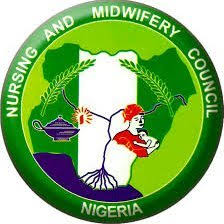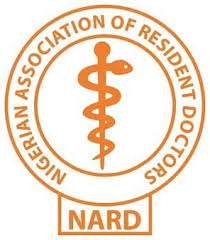Medicine, Dentistry Programmes to Run for Seven, Not 11 Years
The new Benchmark Minimum Academic Standard (BMAS) for Medicine and Dentistry, which has since been made public by the National Universities Commission NUC), provides for a seven-year training,leading to the award of MBBS/MDS and not the 11 years being erroneously circulated in the mass media.
.jpg) Although the so called '11-year Medical Programme' stories have been credited to the Commission's Executive Secretary, Professor Julius A. Okojie's keynote address titled, 'Development of Medical Education in Nigeria: Prospects and Challenges', which was delivered at the Matriculation and Inauguration of the University of Medical Sciences, Ondo, on Saturday, March 12, 2016, nowhere in that lecture was 11 years mentioned or implied.
Although the so called '11-year Medical Programme' stories have been credited to the Commission's Executive Secretary, Professor Julius A. Okojie's keynote address titled, 'Development of Medical Education in Nigeria: Prospects and Challenges', which was delivered at the Matriculation and Inauguration of the University of Medical Sciences, Ondo, on Saturday, March 12, 2016, nowhere in that lecture was 11 years mentioned or implied. Prof. Okojie, who was represented by the Deputy Executive Secretary l, Professor Chiedu Mafiana, had explained that the new curriculum provides for a seamless seven-year programme. With the new curriculum, a Medical student would be expected to graduate in Basic Medical Sciences, with options in Anatomy, Medical Biochemistry and Physiology in the first four years, before proceeding for the clinical training that would run for three years.
Prof. Okojie had further explained that the reviewed BMAS went through a long process, which included wide consultations with the academia, professional associations and regulatory body, following the conduct of a Market Needs Assessment. According to him, the consensus was that medical training should be postgraduate.
The main goal is to ensure that the crop of graduates emerging from the programme are psychologically matured to practice, with a high level of competency.
The new BMAS for medical education still retains the fundamental learning objectives of the six-year programme: the national development goals for health, while retaining the international outlook to guarantee global competitiveness. While noting that the extant six-year programme shall continue to subsist for a period to be determined, Prof. Okojie observed that attempts had been made over the years to run Medical programme using course credit system and that the hallmark of the new document is that it clearly apportions credit weightings to all the courses and activities.
“In line with global practice and to ensure that knowledge and skills are effectively imparted”, Okojie said, “modern course delivery systems have been prescribed. Among core teaching facilities and modes of learning recommended are:
Clinical Skills Laboratory.
The use of the facility would represent a shift in the current mode of medical training to problem-based solving approach and the application of modern techniques which involves use of Mannikins and simulation materials. Clinical Skills Laboratory provides a learning platform in clinical, and information technology skills to certain level of competence before direct exposure to patients, which afford the learner and teacher advanced knowledge in a seemingly practical environment. The facility can also serve as a multi professional/inter professional interactive forum for communication skills development. The simulated patients also provide the learner a safe art of clerkship before direct contact with the real patient thus providing a learning method that efficiently fills the gap between theoretical knowledge and clinical practice.
Classroom Equipment
Adoption of modern delivery method using ICT has become inevitable. Classrooms should be equipped with smart boards, document scanners and biometric scanners for lecture attendance.
E-learning materials and Research Information Platforms
E-learning materials accelerate understanding of courses taught and have become a veritable tool for learning.
Research, generally, are meant to address social issues as well as deepening the knowledge and advancement in the field of studies. Information on the developments and applications in the field of study should be readilyavailable.”
On the above, Prof. Okojie said, “The availability of Nigerian Research and Education Network (NgREN) has made access to teaching (such as Telemedicine) and research information readily accessible, and all Nigerian universities should key into it.”
Since the first erroneous publication of '11 years for Medical Programmes', NUC has sought to correct this misconception by widely circulating the Keynote Address and a Press Release on the matter. The Executive Secretary also took time to correct the misconception by speaking, extensively, on the matter at the recent recognition ceremony of the Edo University, Iyamho, held at the NUC Secretariat, Abuja.
Signed:
Management
ABUJA: Training Schedule for Basic Life Support BLS, Pediatric Advanced Life Support (PALS), Advanced Cardiovascular Life Support ACLS, First Aid, CPR, AED
PORTHARCOURT: Training Schedule for Basic Life Support BLS, Pediatric Advanced Life Support (PALS), Advanced Cardiovascular Life Support ACLS, First Aid, CPR, AED
LAGOS: Training Schedule for Basic Life Support BLS, Pediatric Advanced Life Support (PALS), Advanced Cardiovascular Life Support ACLS, First Aid, CPR, AED




